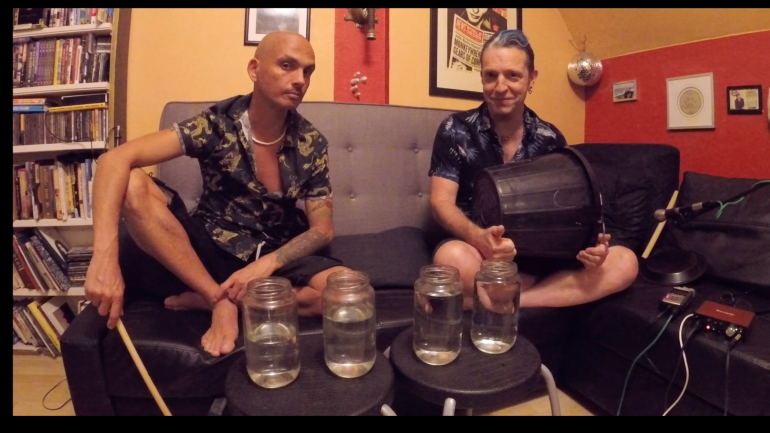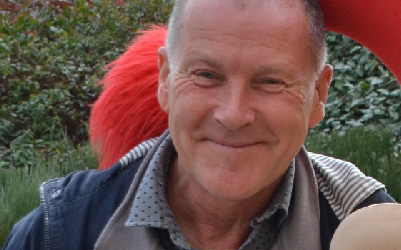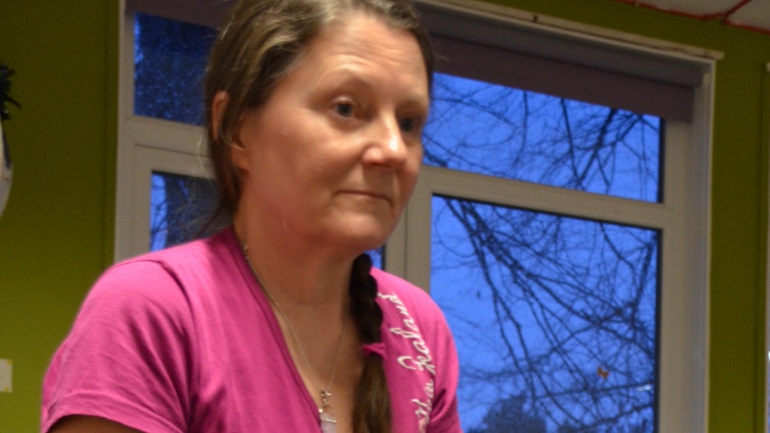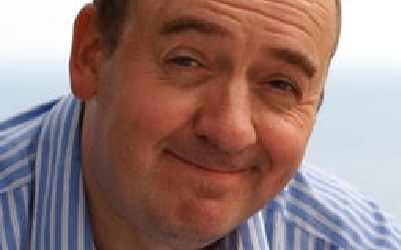Kitchen Gamelan – an amazing lockdown performance of a traditional gamelan piece using pans, glasses and a bucket!


Kitchen Gamelan – an amazing lockdown performance of a traditional gamelan piece using pans, glasses and a bucket!

Some thoughts about working for Good Vibrations as a facilitator – Laurence Rugg
“Punishment is the last and least effective instrument in the hands of the legislator for the prevention of crime.” John Ruskin (1819 – 1900 art critic and prominent social thinker and philanthropist.)
Many of our prisons date from the late nineteenth century. They are places with huge chapels. God was seen as the answer to problems. They reflect the notion of many Victorians that God, in whom most believed, together with punishment and justice, would bring the changes needed in society. Even the very architectural additions such as the scales of justice that form part of the iron railings which surround HMP Leeds reflect this. How much is this relevant to today’s society? Sadly it seems to be at the core in many prisons. Sadly much of society still believes justice is served by punishment. And yet the figures for repeat offending remain persistently high, surely reflecting that punishment has been of little effect. There must be another way.
Equally, the education act of 1870 began compulsory education for all. Before that it had been the preserve of religious societies who provided school places so that the teaching of reading would give children the wherewithal to read the Bible. In truth, it was brought in to address the problem of child labour, to stop children being sent up chimneys. Again, as with prisons, schools were brought in to address societal issues. As with prisons they missed the mark.Not only did they do that in Victorian times but they continue to do it to this day. How many children fail at school because it doesn’t seem to address their needs? How many of those children go on to end up in the prison system? Many of the children in today’s gangs have failed to engage with schooling in any positive way.
Clearly there are also other factors which also affect these issues, but they remain issues which see prisons and schools failing for so many people in society. The reason for this failure is because society in general doesn’t address the needs of the very individuals staring them in the face. In the case of prisons, problems have continued because of both society’s lack of interest and, of late, because of the severe cuts that were made to the prison service in 2010. Things that were being developed were the first things the coalition axed. As ever, that is always the case with the arts. Similarly, Tony Blair’s mantra of “Education, education, education” had a hollow ring as the curriculum narrowed, teaching to tests and the dead hand of OFSTED proclaimed that schools were failing if they didn’t achieve the requisite number of grade A to C GCSEs. I believe the two issues are directly linked. This is why I mention them in the same breath. It is why many of us who think, as did several Victorian philanthropists, that change only comes about when you deal with what is actually there, and explore the rich possibilities a group of people could present, if dealt with in a practical and sensitive way. What we have is a society that, in general, only cares about itself. A society which is driven by money and what it can buy rather than a society which cares about its fellow human beings, that cares about the folk with mental health issues, personality disorders, drug problems and people who just don’t cope well with many things they encounter in life generally. Surely this is where reform is needed and where organisations like Good Vibrations come into the frame, both to provide help for those people in prison or out in society.
I joined Good Vibrations seventeen years ago at its inception. Cathy, its founder, rang me to ask how using the gamelan worked with prisoners. She had heard I’d run a course at HMP Hull. It was a question I couldn’t answer. As far as I’m concerned folk in prison are just another set of people. I had done projects with various community groups and this was just another group albeit with different needs. If anything was different it was that people in prison, as with other places, quickly become institutionalised. That’s one of the glorious things about Good Vibrations that folk often say, “ I forgot where I was.” The effect of the music and nature of the work takes them into a different space, where they can forget, for a while, their present concerns. It relaxes them.
What Good Vibrations can and does do is provide a stimulus to build confidence to work as part of a group and produce something they have made together. This is no mean achievement for anyone, let alone people who are locked up. To this end, we facilitate most of the time rather than dishing out instructions for what is required, although that isn’t entirely excluded. To get this to happen demands a lot of faith in the product – creativity. This is never straightforward and easy because it demands that the facilitator encourages people to talk, listen and discuss. Again, the most common feedbacks are, “I was listened to” and “I was treated as a human being.” But what does this say about the experience of many in prison? One of the officers working on a PIPE (psychologically informed, planned environment) unit simply said, “When you open up in the morning it doesn’t hurt to ask how they are today.” And in one such unit I visited I asked a prisoner what they thought was different about being on a PIPE unit. He said, “Well, when you come back from a course an officer says, how did it go? They show an interest in you.” Simple, but very human things. Things missing in institutions which all too often simply don’t care.
It would be so good if changes could be made in prisons that seriously address such issues, where officers are given training in psychology and interpersonal skills. This costs money but even more than that – a will to make tackling the issue of reducing reoffending real and crucial. It needs people with skills to turn people around by providing the right environment to make this happen. Such is the case in Norway where they reckon they can do this, at most, over a timescale of seven years! Opportunities have been missed. When many officers retired in 2010, a priority could have been made to recruit and skill up those new recruits. However, the only thought at the time was to save money! In addition, to go back to my point at the beginning “society still believes justice is served by punishment.” Society doesn’t care.
I really appreciate the experiences I have had in working for Good Vibrations. Knowing that a group who may have been difficult to manage can pull themselves together to produce a performance on the last day of a course is so good. That’s because they really don’t want to let themselves down. That is part of what they’ve learnt in a week. They have found some self respect and what it is to be part of a group. I think the important issue to keep in mind is that although we use the gamelan to create music our courses are not primarily about making music but about providing a space for people to develop confidence, team working, creativity and a sense of worth. A facilitator uses his or her psychological skills to develop all these things in the short space of a week. It sharpens ones ability to push things in a certain way, to let things go, to give people space to take on things they may never have dreamt of. Working for Good Vibrations isn’t always easy. It has changed the way I view so many things. It has changed my life.
Guest author: Laurence Rugg
7 September 2020

Guest author: Elma Chapman
Having experienced 13 episodes of detainment in hospital, I cannot ignore that ‘Mental’ Health is an important part of my Life Journey, but it does not identify who I am.
It made me reflect on the label of my experience and the stigma and perception it carries. So I looked up the word Mental’, which I do not like and it means ‘Crazy’, so I have ‘Crazy Health Issues’!
How can we ever gain respect and admiration for the tough journey we push ourselves through and break down the barriers of perception, fear and stigma, that sperate us from the human society of ‘normal’ judgemental people with a label that means ‘Crazy’? Plus we are labelled by a dysfunctional system that labels all conditions from Anxiety to Lunacy with one all-encompassing label – Mental/Crazy!
I would love to find a kind, good word that describes us as a human being with challenges to our inner health systems and emotional wellbeing. A word that describes what is happening in a caring way that is not frightening for other people. A word that recognises the fragility and vulnerability of people with various conditions, who truly need to be recognised, accepted as they are with love and support and understanding – not perceived as a part of society to be pitied, feared and excluded in a quiet manner, due to a label ‘Mental’, which is a barrier before considering what that person has lived through.
So if anyone can consider a new way of describing our conditions, that reflects the courage and determination that we possess in our recovery journey, then please do so and let us change our perception.
Elma is a participant on a Good Vibrations project

Jonathan Hollow, Chair of Good Vibrations, writes about the experience of preparing for a BBC Radio 4 Appeal.
“Why don’t we apply for the Radio 4 Appeal?” our trustee Pete Knapton asked at one of our board meetings last year. “Why not indeed?”, I replied. Of course the obvious answer to “why not” was that I was sure thousands of charities must apply, for only 52 slots a year – with those odds, was it even worth trying?
Yes it was! It turns out that Pete’s suggestion was a very good one, because on 9 August Good Vibrations will be fortunate enough to enjoy three minutes of national radio. Three minutes is such a small slice of time to set out your charity and your mission (more on this later), but the appeal slot is at a good time and it’s a highly respected national institution, so if it works for other charities, I’m sure it can work well for us. How pleased we were to be selected!
And how pleased we are to have worked with Benjamin Zephaniah as our presenter. He has been open, friendly, fun and absolutely committed. More importantly, he speaks with the authentic voice of someone who has been in prison, and knows the power of the arts (in his case, poetry and music) to create a new life. He understands and values the work we do at Good Vibrations, using music to help change lives. We could not have asked for a more genuine (and skilled) spokesperson.
The briefing day at the BBC earlier this year was tremendously interesting and fun. First, we got to network with lots of other charities who were doing appeals this year. Second, we got to learn from the cumulative wisdom of the producers, who have been turning this brief radio interlude into a highly developed art form, over many years. They played us examples of appeals that raised a lot of money, and appeals that didn’t do so well, and explained what made the difference. They educated us in the art of writing for radio. And they went through the minutiae of how the money is paid, counted and collected. I never knew there was so much behind what sounds like three simple minutes of radio.
Nonetheless, it was rather daunting to realise that they expect you, not them, to write the script.
And then it was doubly daunting to write a script with a poet and author, who knows how to use words better than any of us.
But Benjamin was open, trusting and generous with his time – and his life experience. We are really pleased with the result. It’s not poetry, but believe me, when you are trying to slice 10 words out of a broadcast, you weigh every single word in a new way. It’s as near to writing poetry with Benjamin Zephaniah as I’ll ever get!
As Chair of Good Vibrations, I believe profoundly in the power of the arts, and the importance of treating people in prison with humanity and dignity. We give people who feel they have nothing opportunities to find new selves that they didn’t know existed. We give them hope. Benjamin’s broadcast describes perfectly how important this is. I am confident it will succeed, and will bring our unique offer to the attention of a receptive national audience.
From the day the broadcast goes out on Sunday 9 August, there is one week when the money raised goes to Good Vibrations. So if you are reading this, please do make a donation, however small, during that week. We’d like to boost our funds with this unique opportunity so we can bring hope to more men, women and young people in prison.
Well, actually, we’d really like to break their record for most money raised. After all, who knows what is possible?
You can read more about our charity appeal on BBC Radio 4 here
Listen online at: http://www.bbc.co.uk/radio4/appeal
Donations are no longer accepted through BBC Radio 4, but can donate direct:
Thank you!

Guest author: Elma Chapman
Fear is our bodies’ language and yet so often we want to shut it up! It is an emotion within ourselves. An emotion in itself is not harmful, therefore why do people so dislike feeling fear, as it can be a warning that we are in danger and need to be aware of it? Almost the word itself conjures up images of frightening things, cowardice, not being good enough – and so on.
If we can try to understand that within us there are past memories of things that truly pained/hurt our inner core, then current events can trigger that wound and we perceive the current moment through that window of pain – so in fact we are not seeing the reality of the current situation, we are feeling a perception of it, based on the untruth and pain of past memory. This can trigger Fear (False Evidence Appearing Real).
This sends our inner world into turmoil as it physiologically goes into flight or fright mode and we are in an orbital spin before we know it. And is the Fear real? Is there a tiger to flee from? A fight to be fought? No – only the demon of emotion within ourselves. So if this happens, what do we do?
First we check in to make sure there is no external real danger! Then we realise we cannot flee from our own body and mind as there is no action to be made – it is an emotion within. So then view FEAR as (Feel Emotion and Release).
Just sit quietly with your Fear (emotion), it cannot harm you. Breathe deeply into your abdomen and listen within and let it go. It almost sounds so simple. But why not give it a go? You may learn the world is not as fearful as you first thought!
Thought for the Day:
We create fear within ourselves as a language. Be still, decide if it’s reality or not, then choose to Feel Emotion and Release (FEAR). Once you have let go, choose a happy thought in its place by being proud of yourself for having the wisdom to know the difference of what you can change.